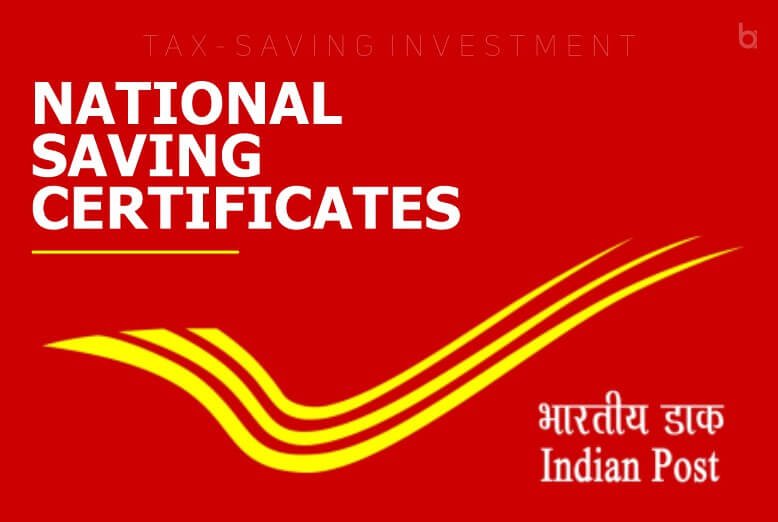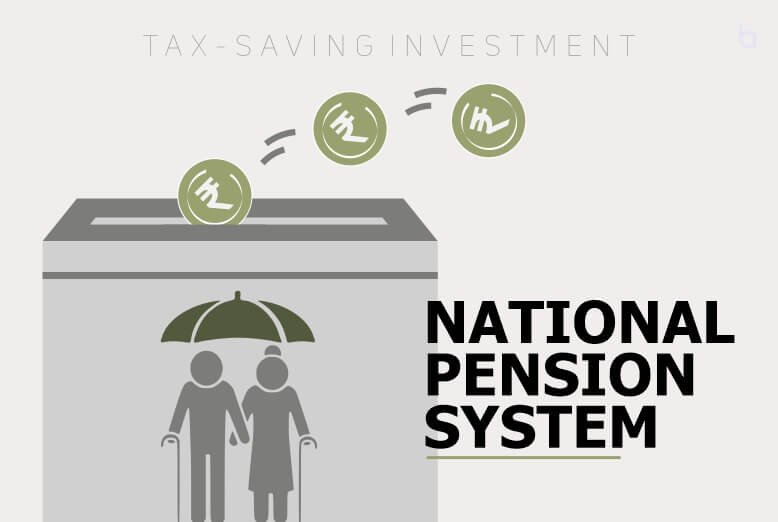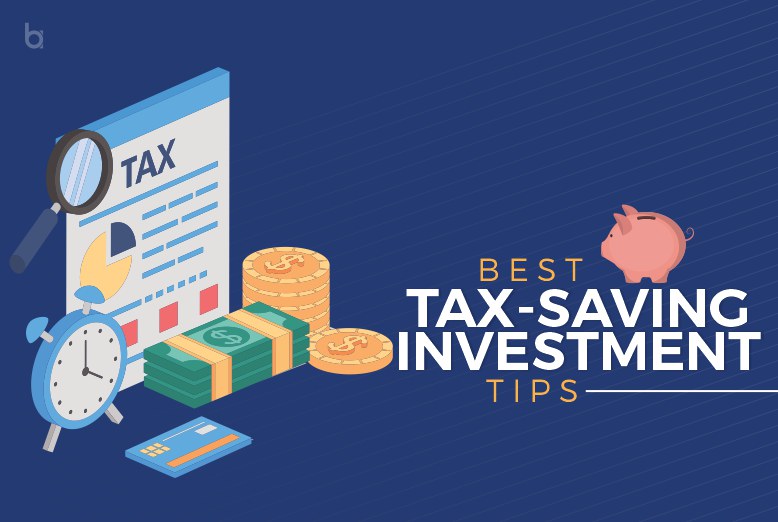Recently, India introduced the new Union Budget 2020, with novel tax rules. However, it depends on the individual if the individual wants to pursue the new tax slab or stick to the old one. Nevertheless, it is essential to understand the tax system and have some of the Tax savings investments handy. This will save individuals from paying a large part of their income to the government. Picking the right tax-saving investments may not come easy for every individual.
Medicare tax, Social security tax, and income tax are some federal taxes that are imposed on our income. There are several Tax saving investments to save your hard-earned money. Some tax-savers are market-linked, i.e., the return generated by banks on the performance of the underlying securities such as equity or debt; some come with guaranteed returns. Taxpayers of the country include individuals, firms, and organizations. Taxes are inevitable for anyone earning and spending money.
Any individual earning above the prescribed basic exemption limit is liable to file an income tax return for the financial year, despite the tax liability. Also, you have several ways to deduct your Income-tax liability. These ways are known as tax-saving instruments.
According to The Income Tax Act, Income is taxable under five heads – Salary, House Property, Business or Profession, Capital Gain, and income from other sources.
The Income Tax Act constitutes 298 sections, and these heads come under different parts, which independently deal with various aspects of taxation in the country. This Act also provides taxpayers with different income tax deductions that they can claim while filing for income tax returns (ITR). The income tax department reassures taxpayers to take the help of the deductions and rebates under the Income Tax Act, to lower the amount that is liable to be taxed.
There are five sections in particular that every taxpayer should notice, which will be particularly useful when one decides to invest in any of the investment Instruments.
These five sections are :
Section 80C – Tax deduction on investments.
Section 80CCC – Tax deduction for contribution to pension funds.
Section 80CCD – Tax deduction for contribution to the national pension scheme.
Section 80TTA – Tax deduction for interest on a savings account.
Section 80TTB – Tax deduction on interest income for senior citizens.
Below are the 15 Best Tax Saving Investments Tips
Under Section 80G
1. Charitable Donations :

Tax Saving Investments
As per Under Section 80G, charitable donations to trusts made by you or contributions to relief funds are Tax-exempted. You can hold 50% or sometimes 100% of the amount, which is contributed to the charitable trust. Ensure that whenever you donate money, the charities and trusts are registered under Section 12A post which they certify for the 80G certificate.
2. Rent towards accommodation :

Tax Saving Investments
Individuals residing in a rented house can claim a tax deduction under section 80G. But, this deduction is acceptable for those who are not salaried and those employees who don’t get House Rent Allowance (HRA) from their employers.
Under Section 80C
3. Public Provident Fund :

Tax Saving Investments
Public Provident Fund (PPF) is helping to create a goal with long-term savings and is preferred as the best Tax saving investment. Deposits made in PPF are eligible to hold a tax deduction up to Rs. 1,50,000 under section 80C. Public Provident Fund is a good option to save on taxes. It is a government-authorized savings scheme that is accessible for a tenure of 15 years and available in almost every bank and post office in India. The PPF also has benefited most importantly safety, flexibility, and liquidity.
4. National Saving Certificates (NSC) :

Tax Saving Investments
National Saving Certificates (NSC) begin with a minimum deposit of Rs. 100. The investment period for NSC is 5 years. On maturity, you can claim the entire amount. However, if failed to claim, the whole amount gets reinvested in the tax-saving scheme. You can claim a tax deduction of Rs. 1,50,000 under Section 80C of the income tax act.
5. Mutual Funds :

Tax Saving Investments
In Mutual Funds, you can go for ELSS (Equity Linked Saving Scheme) wherein you can obtain deductions up to Rs.1,50,000 under section 80C. Being a merger of equity and tax saving, ELSS is a favorable gateway to equity. This means, with the tax savings, your money grows as the stock market grows. So, the gains are high in ELSS. It also has the smallest lock-in period of 3 years.
6. Life Insurance :

Tax Saving Investments
Life Insurance provides full life coverage. In a life insurance policy, one needs to pay a definite amount every year, which in turn is paid back in a healthy lump sum. The maximum deduction eligible under section 80C is up to Rs.1,50,000.
7. HUF Receipts :

Tax Saving Investments
Hindu undivided family (HUF) status is given to certain religions like Hindus, Sikhs, and Jain families. For them, section 10 (2) clearly states that the amount earned from these families is spared from tax duties. In this scheme, a person is favored to pay tax from their salary under their name and pay the amount in the HUF account. So, the paid amount will not be accountable for the tax.
8. Sukanya Samriddhi Yojana:

Tax Saving Investments
This scheme is the best way to save for your daughter. Sukanya Samriddhi Yojana can be opened for all girls below the age of 10. The interest rate is subject to change every quarter.
The interest earned is a tax-free in the Sukanya scheme. The parents can invest in this scheme for a maximum of two daughters.
9. ULIPs :

Tax Saving Investments
Unit-linked Insurance plans are market-linked plans. Under this, the investors are offered the assistance of both investment and protection under a single plan. Financial Investments done under ULIPs are also eligible for tax deduction plus it provides an opportunity to help your money grow. The asset allotment varies between debt and equity offering around 5-9 fund options. This is a long-term investment (of 15-20 years) and an investor should remember that the longer the investment, the higher the returns.
Under Section 80D
10. Pay for health insurance :

Tax Saving Investments
Under Section 80D of the Income-tax Act, taxpayers are granted reimbursement of up to Rs 25,000 for their family and another Rs 25,000 for parents for the insurance premium they pay. For senior citizens, this restraint has been increased up to Rs 50,000. Nowadays, medical care is escalating, and buying health insurance has become essential for everyone as it cooperates with you in your medical charges in case of an emergency. The government grants relief while providing you tax reimbursement for the premium you pay for yourself and your family.
Under Section 80 E
11. Home Loans:

Tax Saving Investments
Home loans are one of the finest ways to save tax in India. Under the new rule, home loans have benefited in bringing down taxable income. If you have a home loan and the interest outstanding on it is tax-deductible which comes under Section 24 of the Income Tax Act, then up to Rs 2 lakh per annum amount can come under deductions. But if the property is on rent, there is no upper limit. Under Section 80E, first-time home buyers can claim an advantage, and one can also retrieve the second loan if they are living in the residence for which they took a loan for the first time. The second home loan has no limit on tax deductions.
Section 80TTA
12. Savings Account :

Tax Saving Investments
Saving some amount for the future is one of the simplest ways to save your money. It is nothing but the following deduction under the Income Tax Act that any individual can claim. Interest drawn on savings accounts is tax-free up to Rs 10,000 per year which falls under Section 80TTA. This restraint is decided by Rs 50,000 for senior citizens for FD as well as savings account interest that falls under Section 80TTB.
Under Section 80 CCD
13. Contribute to the national pension system :

Tax Saving Investments
One of the best ways to save tax is nothing but donating some amount to NPS. There is a deduction possible under Section 80CCD up to Rs 50,000 for contributions to the NPS. This contribution benefits you to invest in equity and debt pension funds so that you can build a retirement corpus. Later this amount can be withdrawn at the age of 60.
14. National Pension Scheme:

Tax Saving Investments
A lot of investors don’t feel the right to invest in NPS because of the long lock-in period. Your money is locked up till the investor retires at 60 years. However, experts suggest that this lack of liquidity is actually a good way to enforce long-term savings which helps you after your retirement.
Under Section 10(1)
15. Agricultural Income :

Tax Saving Investments
Any Income generated from agricultural activities is relieved from the tax under the Indian Income Tax Act. This is done to uplift the agricultural sector. Any rent from agricultural land, income for products, or farm building is not taxed.
Tax Saving instrument for retired Individuals
You can overcome the problem of no monthly salary after retirement by opting for annuity schemes that help you save on taxes and also provide you with a regular income. One such annuity scheme is the “Senior Citizen’s Saving Scheme”. It is available to all individuals above the age of 60. Insurance companies also present special annuity products, which will provide you with a regular income even after retirement. Investments in this scheme even allow premature withdrawals in case of emergency. It saves a substantial amount of money as this withdrawal will assist you to replace your taxable pension.
Smart Tax-Saving Tips to reduce your taxable income :
Invest in the name of any other family member or your parents who are retired and may fall into the category of lower tax.
Transfer large sums to your Non-earning Family member – spouse against an asset like Jewellery, Gold, etc.
While planning your Tax saving investment, an individual should always keep in mind that not all sorts of tax savers are the same in terms of asset class. He should be aware while picking the instrument that best suits his needs. The liquidity, security, and safety of the instrument should be taken into consideration. The target should not only be a Tax saving investment but also to accomplish a different set of financial objectives that you have set for yourself too. The number of gifts on marriage or inheritance from a will is also tax-exonerated. The salaried taxpayer can use their leave travel allowances and house rent allowance to save on tax. The maximum tax saving that you can is Rs. 4,75,000, this limit involves investments and expenses any taxpayer can willingly occur. Under Section 80C and apart from section 80C, there are various ways and opportunities to save Income tax.
Frequently Asked Questions about Tax-saving Investments:
- How can I minimize my tax in a legal way?
There are various options for reducing your tax legally. One such method is investing in government-approved tax-free investment instruments.
- Is it necessary to pay taxes on investments?
It totally depends on the kind of investment you are planning for. You will have to pay taxes on some of the investment types such as capital gains, tax on interest, dividends, and other types of income.
- How many tax-free investment instruments I can have?
There is no such limit. You can have as many tax-free investments as you need. However, do remember that there is a limit of deduction under which you can claim the tax benefits. Refer to the various sections of the Income Tax Act to know these limits.
- Can I claim expenses without a receipt?
Usually, a receipt is provided for every expense you make. However, you can claim a few expenses even if you don’t have the receipt or it is lost due to some reason. These expenses include fuel or petrol expenses, computer items and stationary items expenses, etc. if you can submit the relevant information regarding the same.
- What is HRA and who can claim HRA exemption?
Health Reimbursement Arrangement (HRA) is a plan funded by employers that reimburse employees for select medical expenses. Salaried employees that receive house rent allowance as a part of their salary and make a payment towards rent can claim HRA exemption. This can reduce their taxable salary by a certain amount.
Also read: Become Rich With These 5 Best Trading Apps In India




















